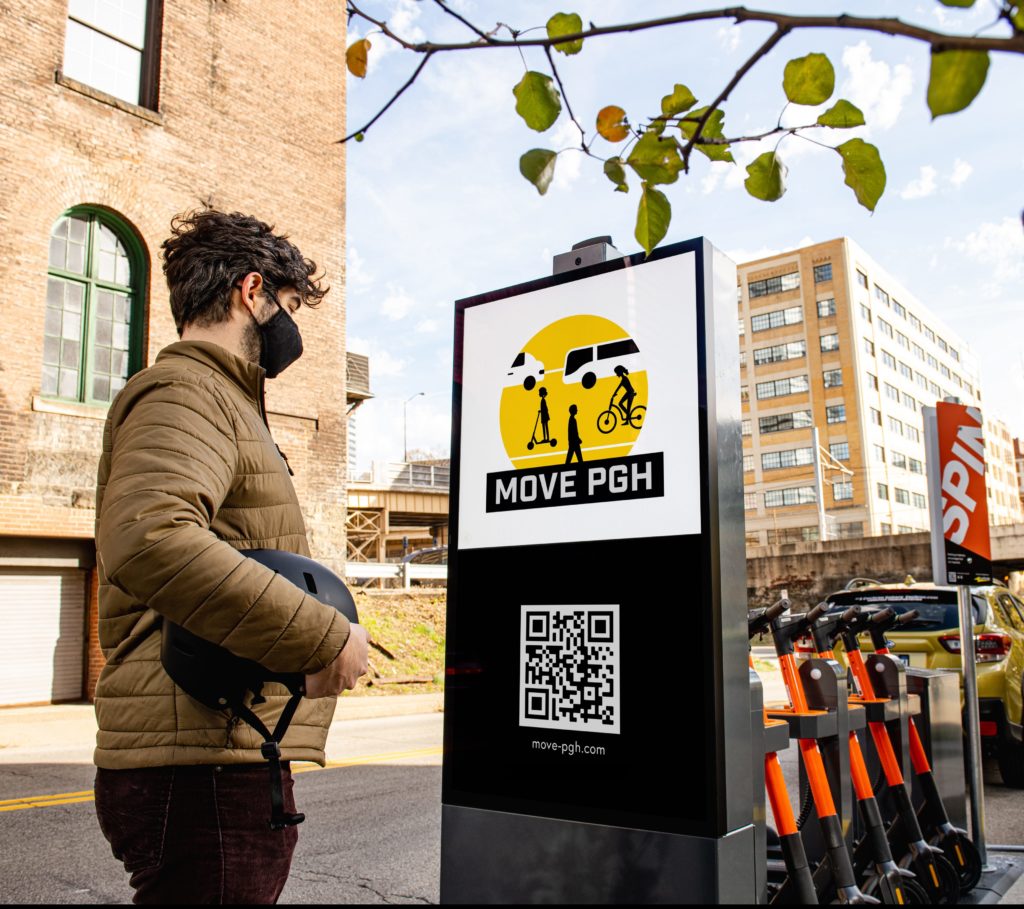
Photo: City of Pittsburgh
Pittsburgh’s Guaranteed Basic Mobility pilot gets underway
23 August 2022
by Sarah Wray
Over a year after it was first announced, Pittsburgh’s Guaranteed Basic Mobility pilot is kicking off, following work to hone the programme’s design. The city hopes the trial could eventually lead to a city-wide scheme.
Fifty eligible participants will receive free access to all of Move PGH’s shared mobility and transportation options which include public transit, Spin scooters, POGOH bikes, and Zipcar. A 50-person control group will receive monetary compensation but no free transport access. Carnegie Mellon University (CMU) will evaluate the trial.
The initiative of the city’s Department of Mobility and Infrastructure (DOMI) aims to help reduce the strain of transportation costs and increase access to jobs, education, healthcare, social services, and recreational activities.
“Having access to affordable and reliable transportation is critical in helping families across our city find a pathway to prosperity,” said Mayor Ed Gainey.
“This pilot programme will help us more fully understand just how much of an impact transportation has on the lives and wellbeing of people in Pittsburgh.”
Refining design
The programme was first announced in July 2021, alongside the Move PGH mobility-as-a-service (MaaS) pilot project that connects shared transportation options into a single system.
A spokesperson for the Mayor’s Office in Pittsburgh told Cities Today: “Since this was announced, we have piloted the programme with a small group of five participants to hone the method and work through any kinks that were identified, and the city worked with CMU’s institutional review board to receive final approval to collect data and study the programme’s economic and social effects on the participants.
“Admittedly, this was a tedious and lengthy process, but helped us to ensure the study would be conducted ethically. “
The year-long pilot will focus on the Manchester and Chateau neighbourhoods, which have a median income 14 percent below that of the city as a whole.
Data
The pilot study will include data collected directly from participant surveys, data regarding specific trips collected from the mobility companies, and data provided by the Allegheny county department of human services to show how granting transportation resources affects the participants’ social and economic wellbeing. The study will also assess trends in how the participants are choosing to use different transportation modes in different combinations.
In order to qualify, participants must be receiving some form of government-funded social assistance, lack regular access to a personal car, and currently be seeking a job – or interested in finding a different job or working more hours.
When originally announced the project was named Universal Basic Mobility.
“The project is now referred to as Guaranteed Basic Mobility due to the fact that this pilot only serves a limited group of participants, whereas Universal Basic Mobility may refer to resources that are universally available to a population,” the spokesperson said. “We hope to learn from this pilot so we can successfully iterate and eventually expand to a form of Universal Basic Mobility.”
The Guaranteed Basic Mobility pilot is funded by a US$200,000 grant from the Richard King Mellon Foundation and Spin has committed an additional US$50,000 for the project.
Other cities, including Oakland, are also experimenting with the guaranteed basic mobility concept.
A separate plan for a guaranteed basic income programme that would have provided US$500 monthly payments to 200 low-income Pittsburgh residents for two years was scrapped by Mayor Gainey earlier this year.






